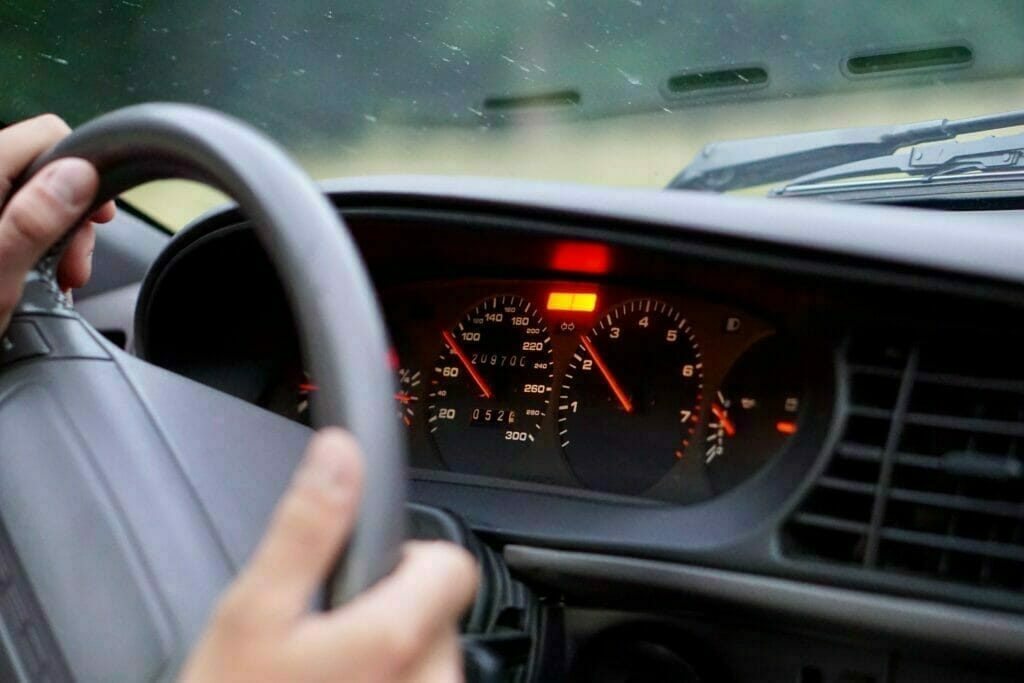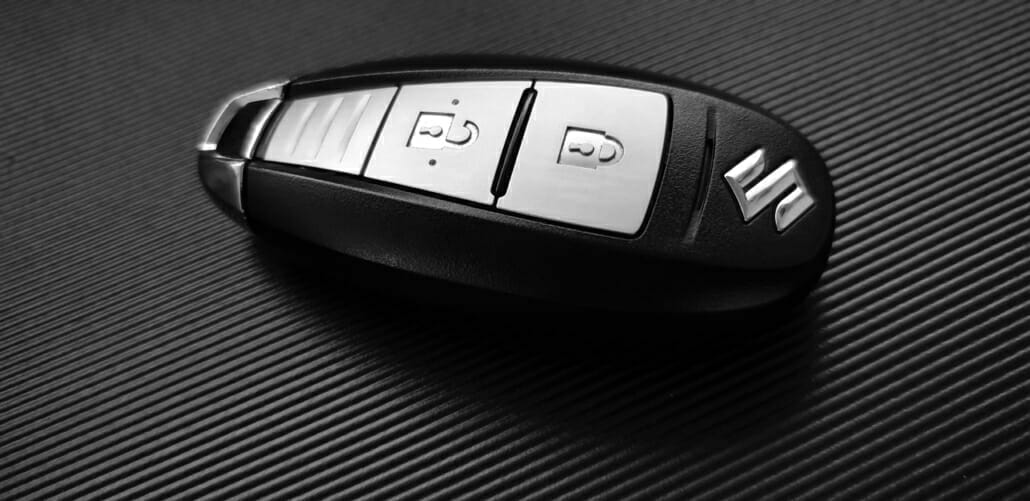Buying a car in Germany

Are you an expat moving to Germany and considering buying a car? The process of purchasing a car, especially in a new country, can be both thrilling and daunting. But fear not, as we are here to guide you through every step of the way.
In this comprehensive blog post, we will provide you with essential information and insights on buying a car in Germany. Whether you’re a first-time car buyer or looking to upgrade your current vehicle, our guide is tailored to meet the specific needs and challenges faced by expats in Germany.
From understanding the car buying process, attending viewings, and test-driving, to negotiating the best deal and completing the purchase contract, we’ve got you covered. We’ll also address important considerations such as vehicle registration and insurance requirements, ensuring you have all the necessary information to make informed decisions.
Buying a second hand car in Germany
If you’re considering buying a used car in Germany, you’ll discover a wide range of options available to you. Purchasing a second-hand vehicle can offer several advantages, including cost savings and a broader selection of models. Let’s explore the process of buying a second-hand car and where to find them.
Where to buy a used car in Germany?
There are various platforms and resources in Germany where you can find used cars. Some popular options include:
Advantages of buying a second hand car in Germany
There are several advantages to buying a second-hand car in Germany:

Disadvantages of buying a used car in Germany
While there are advantages to buying a used car, it’s important to be aware of potential disadvantages:
By being mindful of the advantages and disadvantages, conducting thorough research, and having the vehicle inspected by a trusted mechanic, you can make an informed decision when buying a second-hand car in Germany.
How to buy a car in Germany:
Embarking on the journey of buying a car in Germany requires careful consideration and planning. To ensure a successful and satisfying experience, it’s important to start with the initial step of finding the right vehicle.
#1 Finding the right car in Germany
When it comes to finding the right car, it’s crucial to align your choices with your preferences and requirements. Consider factors such as your budget, desired features, and performance. As experienced drivers, you may have specific criteria in mind, whether it’s a spacious family car, a stylish sports car, or an eco-friendly hybrid. Take your time to research different models, compare specifications, and read reviews to narrow down your options.
While exploring the car market, it’s important to remain level-headed and make practical decisions. Consider factors like maintenance costs, fuel efficiency, and insurance rates. Assessing the reliability and reputation of different car brands can also guide you in making an informed choice.
Additionally, think about your future plans and whether a new or used car suits your needs better. Both options have their advantages and considerations, so evaluate the pros and cons based on your individual circumstances.

#2 Our special tips for the car search
As you prepare for the viewing appointment of your desired used car, it’s important to stay cool and approach the process with a neutral mindset. Here are some key tips to keep in mind:
Determine Your Needs: Before diving into the car search, take some time to assess your specific needs and preferences. Consider factors such as the size, fuel efficiency, features, and budget that align with your lifestyle and requirements.
Research and Compare: Utilize online resources, car listing platforms, and dealership websites to research and compare different makes and models. Read reviews, check reliability ratings, and compare prices to narrow down your options and identify the cars that best meet your criteria.
Set a Realistic Budget: Establish a realistic budget for your car purchase, taking into account not only the initial cost but also ongoing expenses such as insurance, maintenance, and fuel. Stick to your budget to ensure a financially sound decision.
Consider Resale Value: Remember that this might not be your last car, so think about its future resale potential. Opt for more universally appealing colors and avoid overly unique interior decorations.
Take a Test Drive: A test drive is crucial to assess how a car feels and performs on the road. Schedule test drives for the vehicles you are considering and pay attention to factors like comfort, handling, braking, and visibility. Take your time during the test drive to get a comprehensive feel for the car’s capabilities.
Be Cautious with Tuned Cars: It’s generally better to avoid vehicles that have been extensively modified or tuned. Unless you have expert knowledge, it’s difficult to be certain that all modifications were installed correctly. Opt for a stock vehicle and consider doing any tuning yourself if desired.
#3 During the viewing appointment, follow these guidelines:
During the viewing appointment, it’s important to follow these guidelines to ensure a thorough evaluation of the car:
By following these guidelines, you’ll be well-prepared to conduct a thorough evaluation of the car during the viewing appointment. Taking the time to carefully assess the vehicle will help you make an informed decision and ensure a successful car purchase.

#4 The test drive
When it’s time for the test drive, your companion can provide valuable support. Having an additional driver allows for another set of ears to detect any suspicious noises or issues. It’s often overlooked, but as a prospective buyer, it’s beneficial to also ride along as a passenger. From the passenger or back seat, you can gain a better understanding of the car’s comfort and overall experience without the distractions of driving.
Before starting the test drive, ensure that the car is adequately insured and registered by the owner or dealer. Clarify whether you can drive the car alone or if the seller needs to accompany you. While driving, pay attention to the car’s handling, acceleration, braking, and overall driving experience. Test the different features and controls to ensure they are functioning properly.
Be attentive to any unusual noises, vibrations, or warning lights during the test drive. Test the brakes for responsiveness and smoothness. Note any issues or concerns that arise.
Feel free to ask the seller or dealer any questions you may have during the test drive. Inquire about the car’s maintenance history, service records, and any previous accidents or repairs.
If you don’t have an expert with you, consider taking the car to a test center where it can undergo a thorough examination. This will provide you with a detailed inspection report that can be useful for negotiating the price if any defects are discovered, potentially affecting the cost.
#5 The price negotiation
You have found the car of your choice, inspected it, and test-driven it. The next step is price negotiation. For you, the decision is made: “I want to buy this car!” But keep those thoughts to yourself for now. A rock-solid poker face is your most crucial negotiating companion from now on. Continue to be critical and point out possible defects. It will give you the best chance of getting the price down a bit. It is also where the inspection report with possible defects can come into play.
Consider Cash Payment: Paying in cash can often lead to additional discounts. If you have the means to do so, consider offering cash as a bargaining tool for a better deal.
Approach Negotiation Respectfully: Remember that negotiations should be conducted on an equal playing field. Avoid seeing yourself as a weak supplicant or the dealer as an insurmountable enemy. Show respect and maintain a calm and confident demeanor throughout the negotiation process.
Know When to Walk Away: If the negotiation reaches a stalemate and the seller refuses to budge on the price, be prepared to walk away. Sometimes, this action can motivate the seller to reconsider their position and make a more favorable offer.
Explore Additional Services: If the seller is unable to lower the price, consider negotiating for additional services or perks. This could include a later inspection, a set of tires, underbody protection, or even a fuel voucher. Be open to creative solutions that add value to your purchase.
#6 The purchase contract
When it comes to buying a car, the purchase contract plays a vital role in documenting and regulating the rights and responsibilities of both the buyer and the seller. While there are various templates available online that cover all the necessary information, it’s essential to pay attention to a few key details. Here’s what you should keep in mind:

#7 You must receive all keys and documents from the seller
Take a close look at the papers. Check that everything matches, such as the chassis number. If the seller does not own the car, he needs a power of attorney to sell it. This information must include in the purchase contract.
If the seller does not use any of the known templates, you should make sure that at least the following things are recorded in the contract:
- Address, name, date of birth, and identification number of the buyer and seller
- Vehicle data: Manufacturer, type, registration number, vehicle ID number, first registration, and any accessories that are being sold with it
- purchase price
- possible detected defects or accident damages
- Warranty or guarantee commitments of the seller (if available)
- declaration of the seller for re-registration
- other agreements
- your confirmation to have received the documents, the car, and the keys
- Signatures of buyer and seller
You should also pay attention to the warranty issue when buying a car. A commercial seller is obliged to give you at least one year warranty. However, this does not apply to a private seller, and he does not have to assume any liability if defects occur later.
Purchased!
Car insurance and car registration in Germany
After the purchase is before the registration. What do I have to do after buying a car?
First of all, you need car insurance. It is required by law and must be at least in the form of motor vehicle liability insurance. If you cause an accident, it covers the damages to other road users.
Conversely, their insurance covers your damages. In addition, there are partial and comprehensive insurance policies. It includes damage caused by hail, thunderstorms, fire, or theft. Fully comprehensive insurance covers all damages and injuries you cause. Provided you are not grossly negligent or driving under the influence of drugs.
The three types of car insurance in Germany
When it comes to insuring your car in Germany, there are three primary types of car insurance coverage to consider: motor liability insurance, partial cover insurance, and fully comprehensive insurance. Each type offers different levels of protection and covers various types of damages. Let’s take a closer look at each one:
Motor Liability Insurance
This is the minimum legal requirement for all vehicles in Germany. Motor liability insurance provides coverage for damages caused to third parties in an accident that you are deemed responsible for. It includes injuries, property damage, and any related legal costs. It is important to note that motor liability insurance does not cover damages to your own vehicle or personal injuries.
Partial Cover Insurance
Also known as “Teilkasko” insurance, this type of coverage offers additional protection beyond motor liability insurance. Partial cover insurance covers damages to your vehicle resulting from specific events such as theft, fire, natural disasters (e.g., storms, floods), broken glass, and vandalism. It provides financial assistance for repairs or replacement of your vehicle in these circumstances.
Fully Comprehensive Insurance
Considered the most extensive coverage, fully comprehensive insurance, also known as “Vollkasko” insurance, provides protection for damages to your own vehicle, regardless of who is at fault. In addition to the coverage provided by partial cover insurance, fully comprehensive insurance also covers damages caused by accidents where you are at fault. It provides financial assistance for repairs, replacement, or the market value of your vehicle, depending on the policy’s terms and conditions.
Once you have chosen the appropriate insurance coverage, you will receive an electronic insurance confirmation known as the eVB number. This seven-character combination of numbers and letters serves as proof of your insurance coverage and is required when registering your vehicle or making any changes to your insurance policy.

Car registration in Germany
The registration office has direct access to your eVB number via a central database. It confirms that you have (at least) taken out appropriate motor vehicle liability insurance.
Together with the other documents, nothing more stands in the way of registering your new car.
Depending on the registration type, you will have to pay between EUR 26.30 and EUR 41.60 for the registration. After that, you have everything you need to drive off with your license plate and environmental badge.
Documents you need for car registration in Germany
- Your ID/ Passport
- Registration certificate part I (vehicle registration document)
- Registration certificate part II (vehicle title)
- evB number: electronic confirmation of insurance
- a valid form of identification
- Money for registration fees
A tip for the future: If you ever move, you can also take your license plate. You have to change the address in the vehicle registration document at the registration office and pay between EUR 20.00 and EUR 30.00 for this. This way, you can continue to drive with your Berlin license plate after moving to Munich.

Buying and leasing vehicles in Germany
When it comes to purchasing or selling a car in Germany as an EU citizen, you have the flexibility to do so anywhere within the EU. However, it’s important to understand your rights and obligations, especially when buying a car from abroad. Here are some key points to consider:
Whether you’re buying a new or used car will impact your rights and the amount of Value Added Tax (VAT) applicable. In general, purchasing a new car from a commercial dealer within the EU grants you the highest level of legal protection.
Commercial Dealer vs. Private Seller
Your rights may also vary depending on whether you buy the vehicle from a commercial car dealer or a private individual. EU consumer protection rules typically provide a two-year warranty claim for new cars bought from commercial dealers if the car has defects or does not match the provided description. However, it’s important to note that private sales are not covered by these consumer rights, so caution is advised in such cases.
Warranty Period for Used Cars
The warranty period for used cars can vary across EU countries. In some cases, it may be shortened to one year. However, any changes to the warranty period must be agreed upon between the buyer and seller at the time of purchase. It’s essential to establish clear terms and conditions regarding warranties in used car transactions.
It’s worth noting that these regulations and consumer rights are specific to transactions within the EU. If you are purchasing a car from a non-EU country, different rules and considerations may apply.
When engaging in a vehicle transaction, it’s always recommended to thoroughly review the terms of the sale, understand your rights, and consider seeking legal advice if needed. Additionally, conducting a comprehensive inspection of the vehicle and obtaining a complete vehicle history report can provide valuable insights into the car’s condition and ensure a smoother purchasing process.

Leaving Germany with a car
If you go on vacation or leave Germany altogether, you can also take your German car with you.
However, it’s important to note that if you are leaving Germany for good you cannot drive with a German license plate indefinitely in your new country of residence. In many European countries, there is a time limit for driving with a foreign license plate, typically up to 180 days.
If you plan to move abroad and deregister your German residence, you will also need to deregister your car.
Did you know: The vehicle registration office automatically informs the main customs office and your insurance company about the deregistration of your vehicle.
Deregistering your German car from abroad
Unfortunately, deregistering a vehicle from abroad, such as at the diplomatic missions of the Federal Republic of Germany, is generally not possible. You will need to deregister your vehicle in person at a vehicle registration office in Germany or, if available, through their online portal.
If you don’t have anyone in Germany who can assist you with the deregistration process, there are service providers like Abmelden.de that can help. They can act as your representative and handle the deregistration on your behalf, providing you with a digital confirmation once the process is complete.
It’s recommended to personally visit the vehicle registration office for deregistration, but if that’s not possible, appointing a representative with a power of attorney is an alternative option. Unlike vehicle registration and transfer, the representative does not require a power of attorney for the deregistration process.






